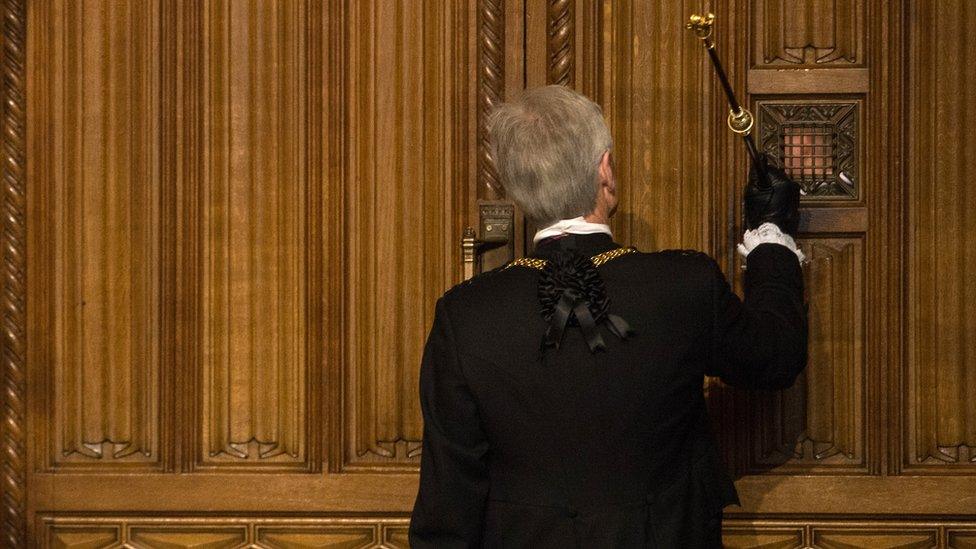Does Jeremy Corbyn have a woman problem?
- Published
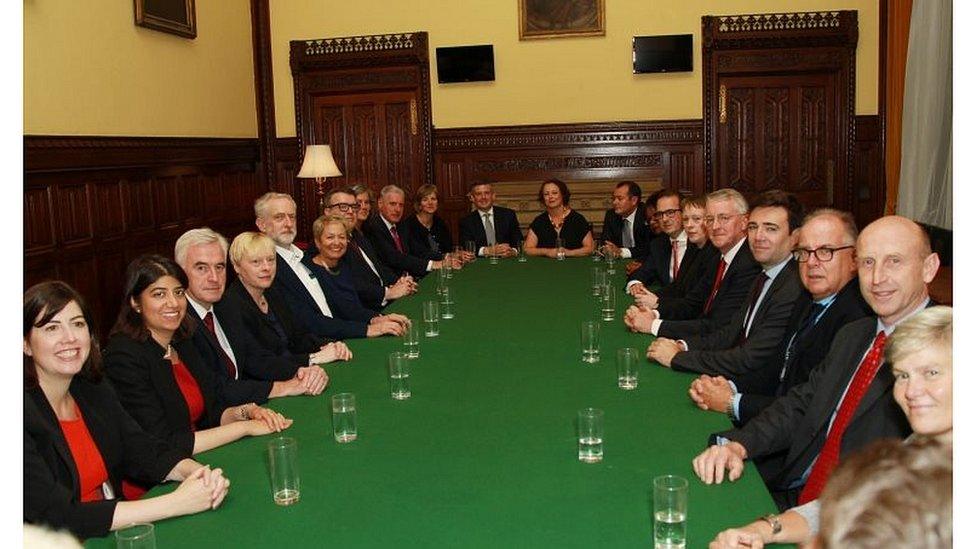
Jeremy Corbyn's shadow cabinet's first meeting
It is a question made for a tabloid headline, but the issue facing Jeremy Corbyn has got nothing to do with his private life.
Previously loyal supporters and critics alike are asking: Has the new Labour leader got a women problem?
It was an issue that first arose as the result of the Labour leadership election was announced on Saturday morning, when Corbyn and Tom Watson became the all-male team of leader and deputy leader of the party.
When the key appointments were announced to the shadow cabinet, the voices grew louder.
Shadow chancellor - man. Shadow foreign secretary - man. Shadow home secretary - man.
Late on Sunday night reporters waiting for more appointments heard first hand that the gender issue was being taken seriously in Team Corbyn.
As the BBC's Eleanor Garnier reported: "Then, close to midnight, a new voice, we thought it could be Simon Fletcher: 'We're taking a fair amount of shit out there about women… let's make Angela… shadow first minister of State, like Mandelson, she can do PMQs… do the Angela bit now."
Shortly afterwards Eagle, already the shadow business secretary, did indeed become Corbyn's defacto deputy.
By the time the full shadow cabinet was named on Monday lunchtime, Labour were able to trumpet the fact that more than half of their shadow cabinet was made up of women.
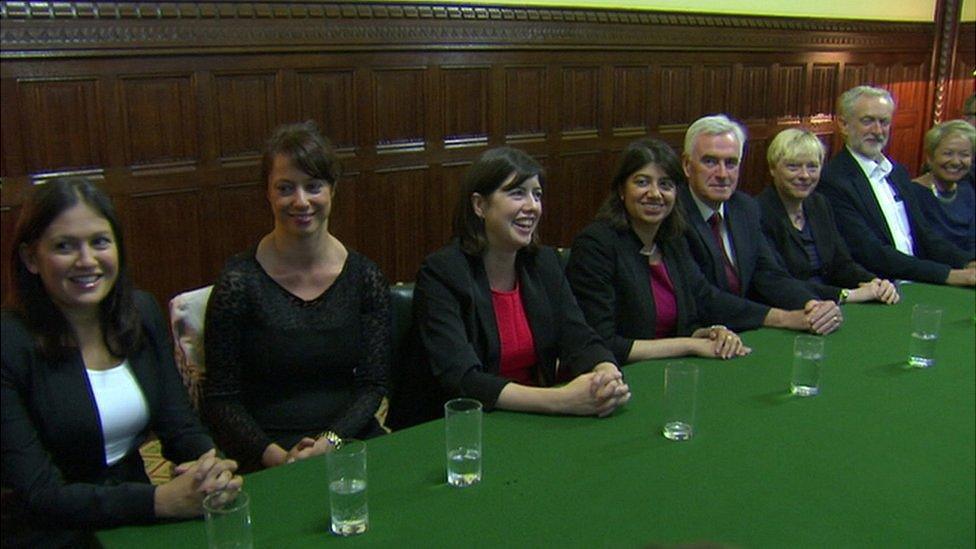
Cameras were allowed into the first shadow cabinet gathering
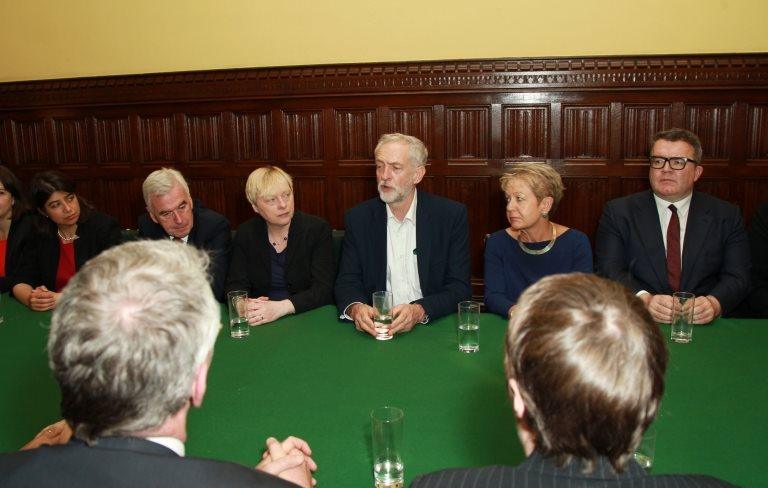
Corbyn was flanked by chief whip Rosie Winterton and Angela Eagle
That fulfilled Corbyn's campaign pledge and is the first time any party has been able to make such a claim.
When he, and his new shadow chancellor John McDonnell were asked about the lack of women in top jobs, they had similar responses - that traditional views of what the great offices of state were was based on the days when Westminster had an Empire to rule.
Actually, they both said, education and health were the big priorities and the big jobs for them and they were both roles filled by women.
And yet that suggestion has failed to impress the commentators.
In the Daily Telegraph Dan Hodges writes:, external "In a mere 48 hours, it has all disappeared - all that stuff about new principles and new values and a new beginning. Vanished into the night."
In The Times, Rachel Sylvester writes:, external that "for all the talk of a new kind of politics, Team Corbyn's patronising approach to women is a throwback to the 1970s".
She continues: "Although the leader's office insists the shadow cabinet as a whole is balanced, two of the female members have been appointed to entirely new positions, dealing with mental health and young people. It is as if Mr Corbyn's proposal for women-only carriages on trains has been transposed to Westminster, with female politicians given their own "safe" areas. For a party supposedly committed to equality it seems a surprising failure - but in keeping with the macho nature of traditional hard-left politics to which the new leader belongs."
In the Guardian Rowena Mason reports, external Labour's previous Lords leader Lady Royall as saying: "I applaud … [that] there will be equal numbers of men and women in the shadow cabinet. And maybe Jeremy does believe the shadow international development portfolio is as important as the Treasury. But the thing is the outside world does not think that. Maybe we can change the culture of our party, parliament and the country, but they are not [thinking that] at the moment."
It is obviously an issue that Corbyn is keen to tackle - telling the TUC on Tuesday that the gender balance of his shadow cabinet was a sign of his new politics.
So how do his numbers add up?
The shadow cabinet announced by Labour includes 31 roles (including some which are not shadowing cabinet roles) of which 16 are held by women.
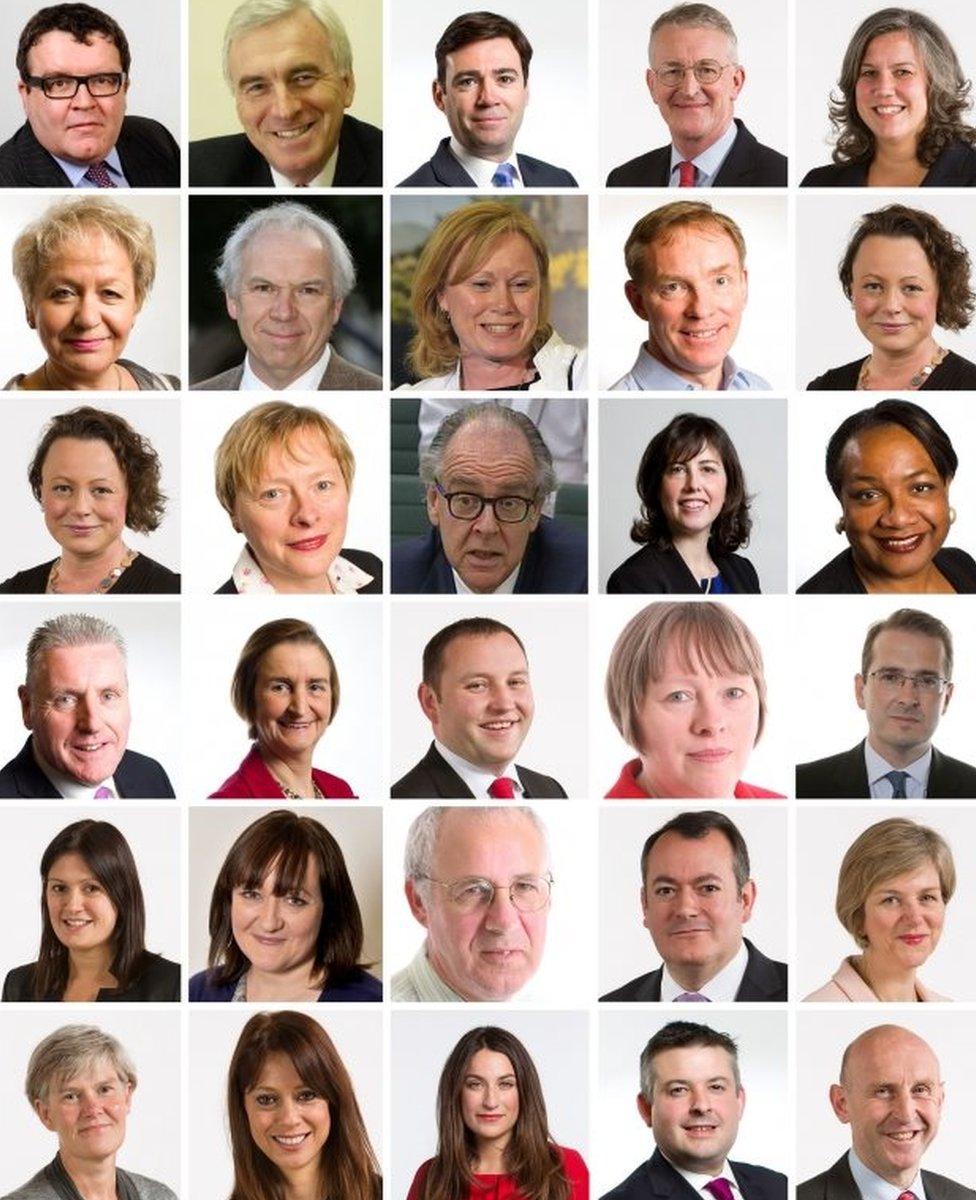
That compares with the current cabinet, which has seven women out of 22 members, and the then-record-breakingly diverse first Tony Blair cabinet of 1997 which had more than two women in it. ( there were five - see the full list here, external)
Ahead of the general election eleven members of Ed Miliband's 27-strong shadow cabinet were women.
On a more general note - across the House of Commons - there are 191 women, which is 29% of the total - the highest ever. (For more stats on women in Parliament and Government, try this House of Commons Library briefing paper, external)
Overall, those comparisons do not look too bad.
But, even allowing for those motivated by opposition to Corbyn, there's been a woman prime minister, a woman home secretary and, for a short period, a woman foreign secretary.
And until one of those roles - or shadow roles - is filled in Corbyn's team by a woman, then the gender question is likely to hang around.
- Published14 September 2015
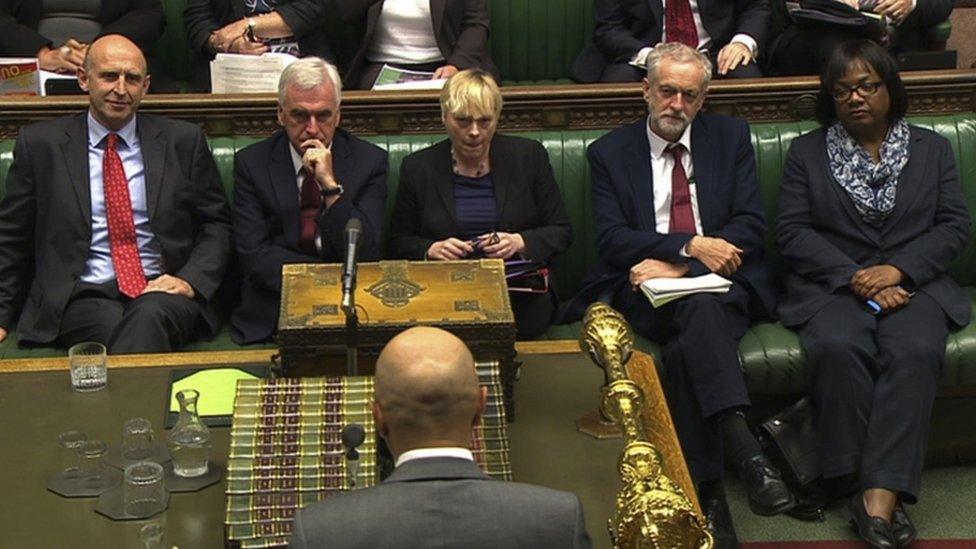
- Published14 September 2015
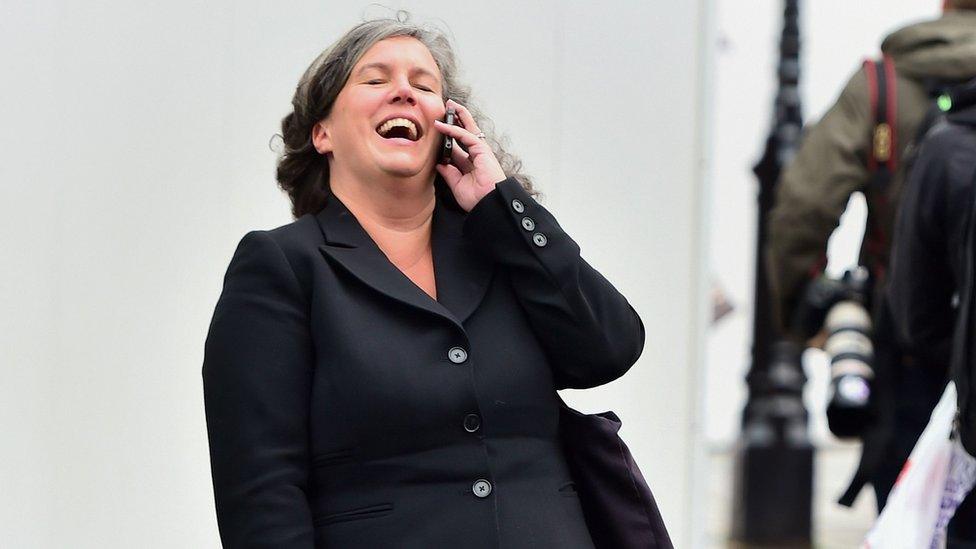
- Published14 September 2015
